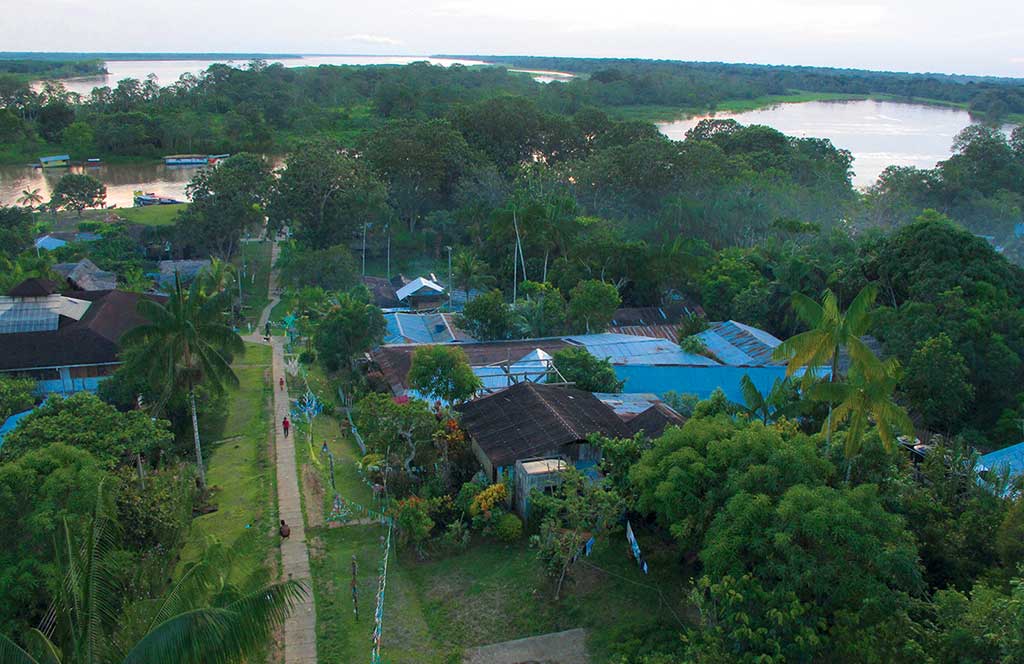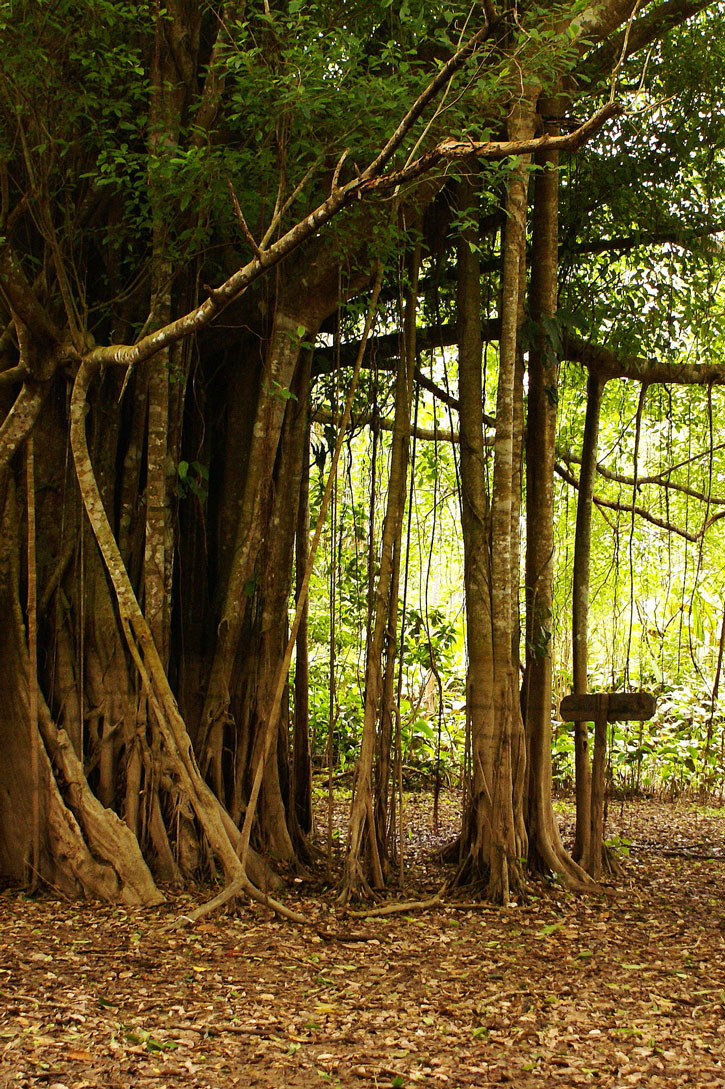When you disembark at the village of Puerto Nariño, atop a sloping hill overlooking the Río Loretoyacú, you’ll wonder: Where are the motorbikes? Here in idyllic Puerto Nariño, there are no roads and no motorized vehicles whatsoever. Environmentally minded and forward-thinking town council members decided many years ago that they wanted Puerto Nariño to chart a different path than almost all other towns in Colombia (and for that matter in the world), and for their efforts, this town was named the first tourism sustainable town in the country. Here “roads” are actually palm-lined sidewalks that connect all the neighborhoods of this community together. Puerto Nariño is so peaceful, you’ll probably want to linger a while.

A bird’s-eye view of Puerto Nariño. Photo © Andrew Dier.
The Centro de Interpretación Ambiental Natütama (cell tel. 312/410-1925, 8am-12:30pm and 2pm-5pm, donations encouraged) is run by the conservation and education nonprofit Natütama. At their center, you can watch some excellent videos about two important river species: the pink dolphin and the manatee. While the pink dolphin is celebrated in indigenous mythology, the unfortunate manatee is not. Thus it has been hunted to the brink of extinction. The focus of this organization is conservation awareness among the community, and in large part due to their educational outreach activities, the number of manatees in the Puerto Nariño area has grown from 11 in 2002 to 24 in 2012. They also sell handicrafts and T-shirts, the proceeds of which help them carry out their activities. Natütama means, in Ticuna, the “world below the water.”
Lago El Correo and Lago Tarapoto are about a 20-minute boat ride from Puerto Nariño, and this area is a good place for dolphin spotting (both pink and gray), swimming, piranha fishing, and nature hikes. Lago Tarapoto is connected with the Amazon, so by swimming in its serene waters you can truthfully say that you swam in the Amazon. The Lago Tarapoto at 37 square kilometers (14 square miles) is much larger than the adjacent Lago El Correo, which is closer to Puerto Nariño.
There are several spots in this area where you can see renacos, also known as el arbol que camina (the tree that walks), a tree with a jumble of above-ground roots. To get to the lake you’ll have to go with a guide on a boat. The tourist office in Puerto Nariño or any hotel can help organize a visit to these lakes and surrounding flooded jungles. This excursion, pleasant to make in the late afternoon, will cost COP$50,000 per person.

The Colombian Amazon. Photo © Lukasz Janyst/123rf.
It takes just under two hours on a public boat to make the 87-kilometer (54-mile) river journey from Leticia to Puerto Nariño without stopping. Tickets (COP$24,000 one way) for this trip can be purchased at the Leticia malecón. Look for the office at Malecón Plaza Local 101, to the left of the malecón. Three companies provide this service: Transportes Amazónicos (tel. 8/592-5999), Líneas Amazonas II (tel. 8/592-6711), and Expresos Unidos Tres Fronteras (tel. 8/592-4687). There are usually three boats per day starting at 8am, 10am, and 2pm.
When leaving Puerto Nariño bound for Leticia, make sure you reserve your spot a day or so in advance. You can do this at the office on stilts along the walkway to the docks. Boats leave Puerto Nariño at 7:30am, 11am, 2pm, and 4pm. You can also take a boat to Caballococha, Peru, from Puerto Nariño. Ask at the office about this option.
Excerpted from the First Edition of Moon Colombia.